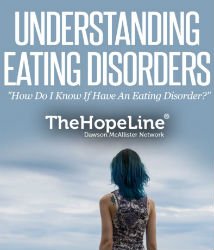How to Break the Cycle of Emotional Binge Eating
If you’re like most people with emotional binge eating disorder, you want to know how to break the cycle. You don’t want to keep feeling out of control, ashamed, and defeated. You want to be able to eat like a normal person and not feel like food is your enemy.
The good news is that there is hope. With the right treatment and support, you can break the cycle of emotional binge eating and take back control of your life.
What is emotional binge eating?
Emotional binge eating is a type of binge eating disorder. Binge eating disorder is characterized by episodes of binge eating followed by feelings of shame, guilt, and embarrassment.
Binge eating episodes are defined as eating an excessive amount of food in a short period of time. This is usually accompanied by a feeling of being out of control and powerless to stop.
After the binge, people with binge eating disorder often feel guilty and ashamed. They may try to “compensate” for the binge by fasting, purging, or excessive exercise.
What causes emotional binge eating?
There is no single cause of emotional binge eating. It is thought to be a combination of genetic, psychological, and environmental factors.
Some people may be more prone to emotional binge eating because of their genes. This may be due to a chemical imbalance in the brain that affects mood and hunger.
Psychological factors can also play a role in emotional binge eating. For example, people who have a history of trauma or abuse are more likely to develop binge eating disorder. This is because they may use food as a way to cope with difficult emotions.
Environmental factors, such as stress, can also trigger emotional binge eating. For example, someone who is going through a divorce or job loss may turn to food for comfort.
What are the consequences of emotional binge eating?
Emotional binge eating can lead to a number of physical and psychological problems.
Physically, emotional binge eating can lead to obesity and all of the associated health risks. This includes an increased risk for heart disease, diabetes, and certain types of cancer.
Psychologically, emotional binge eating can lead to feelings of shame, guilt, and low self-esteem. It can also lead to depression and anxiety.
How is emotional binge eating treated?
The first step in treating emotional binge eating is to seek professional help. This may be in the form of therapy, counseling, or a support group.
Cognitive behavioral therapy (CBT) is a type of therapy that has been shown to be effective in treating binge eating disorder. CBT can help you identify the thoughts and behaviors that are triggering your binge eating. It can also help you develop healthier coping mechanisms.
Medication may also be used to treat emotional binge eating. For example, antidepressants may be prescribed to help stabilize mood. Anti-anxiety medications may also be prescribed to help reduce stress and anxiety.
The most important thing to remember is that you are not alone. There is help available if you are struggling with emotional binge eating.









Recent Comments